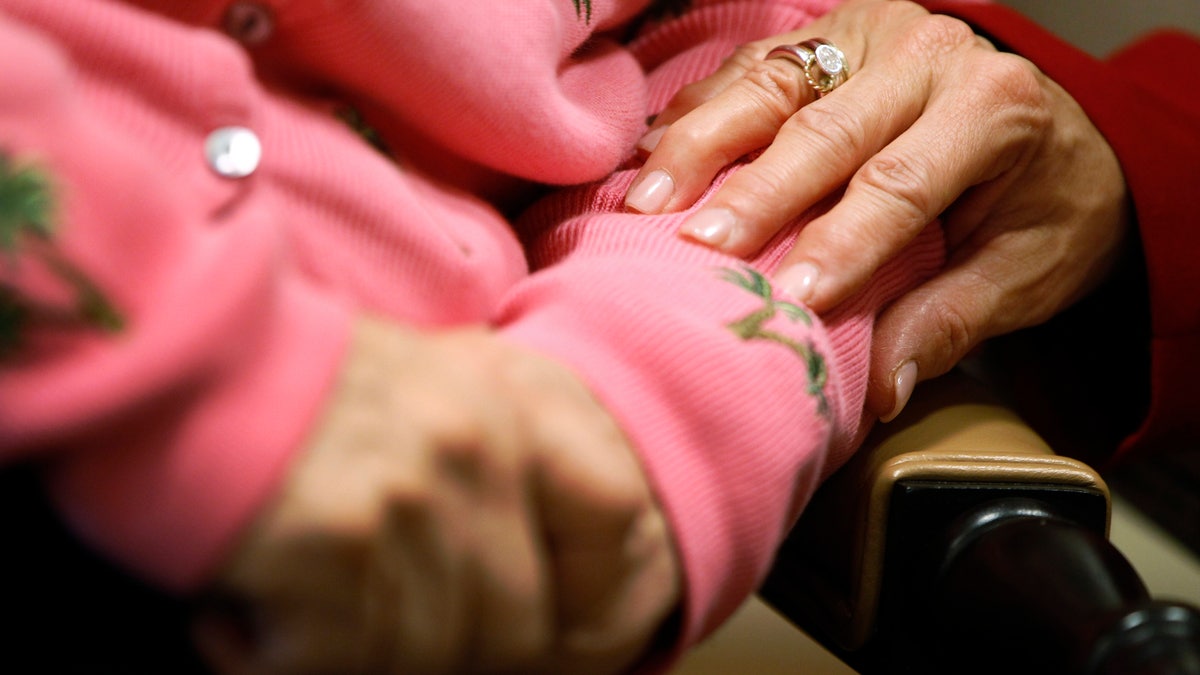1950s-themed senior centers are providing comfort for people with Alzheimer's
One-in-nine people over the age of 65 have some form of Alzheimer’s, and the disease is only becoming more common, according to the Alzheimer’s Association. There’s no cure for Alzheimer’s, but some senior daycare centers are using 1950’s nostalgia t
The holiday season may be one of the most challenging times for an Alzheimer’s caregiver and their family.
For most of us, the change you see in your loved one with dementia is gradual. One year they might forget to buy a host or hostess gift like they always had before. Another year they could get confused while making a signature side dish. Later on, they may not even know it’s a holiday or recognize the people gathered. A crowded room or dinner table becomes too much to handle.
To a loved one with Alzheimer’s, a holiday is no different from any other day. So just like any other day, you must learn to enter their world. Be flexible. Remember that memory loss changes a person; they’re not being belligerent or antisocial on purpose. Know that traditions may have to be modified or replaced. Look for opportunity, rather than looking back.

The director of an Alzheimer's assisted-living facility in Washington puts her hand on the arm of a resident, Feb. 6, 2012. (AP Photo/Charles Dharapak, File)
Seeing the holiday through your loved one’s eyes leaves you free from expectation and gives you both the chance to share in happiness. Moments of joy between you and the one living with Alzheimer’s always sneak up at the most unexpected times. There is a lot of life to live and love to be shared, it just takes different forms over the years. Practice gratitude for the person your loved one is today, and try to appreciate those happy moments while you’re in them.
5 THINGS I WISH I KNEW WHEN MY WIFE WAS DIAGNOSED WITH ALZHEIMER'S
One way to have a healthier and happier holiday season may seem very basic, but I can’t say how important sleep can be, especially for caregivers.
You likely recall this portion of the famous poem "Twas the night before Christmas":
"…The children were nestled all snug in their beds;
While visions of sugar-plums danced in their heads;
And mamma in her 'kerchief, and I in my cap,
Had just settled our brains for a long winter's nap,…"
Alzheimer's caregivers, take note! It’s no coincidence that the author, Clement Clark Moore, described sleeping as a way to "settle our brains."
Much has been written about the importance of sleep to stay healthy. Recent research makes it powerfully clear how important sleep is to a dementia caregiver’s ability to cope with the stress of caring for a loved one. Poor sleep or not getting enough sleep can cause serious problems for caregivers such as irritability, less patience, and difficulty to think clearly. Some experts also say there could be a link between a lack of sleep and developing Alzheimer’s, suggesting that people can reduce their risk of the disease by getting enough rest.
By some estimates, caregivers lose 2.5 to 3.5 hours of sleep each week on average because they have trouble falling and staying asleep, often because they worry that their loved one might suffer a fall or try to leave the house during the night.

Most people realize sleep is beneficial, but caregivers might not realize it’s absolutely essential to deal with issues that crop up each day for a person with Alzheimer’s. (iStock)
CLICK HERE TO GET THE OPINION NEWSLETTER
Some studies indicate that brain waves during sleep trigger a sort of cleansing system that literally washes toxic substances out of our brains. When combined with a healthy diet, exercise and controlled blood pressure, adequate sleep is a key factor in helping caregivers stay healthy enough to focus on their loved one and provide the care they need.
If you're a caregiver, do what you can to not be sleep-deprived. Most people realize sleep is beneficial, but caregivers might not realize it’s absolutely essential to deal with issues that crop up each day for a person with Alzheimer’s. The effect of being exhausted – of not getting enough sleep – is that it robs you of the ability to experience moments of joy with your loved one.
CLICK HERE TO GET THE FOX NEWS APP
If you have trouble falling and staying asleep, talk with your doctor to be sure you don’t have a medical condition that requires treatment.
I share the mistakes I've made and wisdom I have learned in "My Two Elaines: Learning, Coping and Surviving as an Alzheimer’s Caregiver" to help other caregivers know they are not alone.
My wish for every caregiver and their loved one is a joyous, peaceful and blessed holiday season.





















